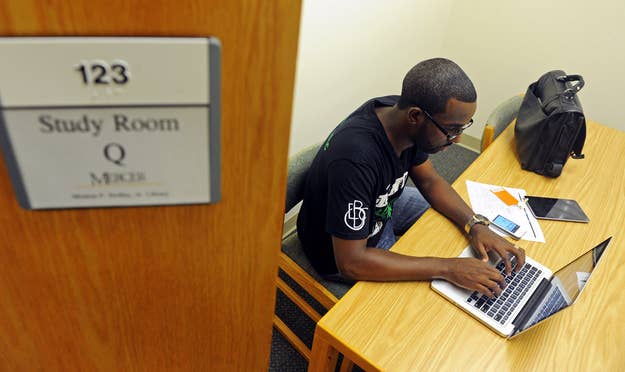
WASHINGTON — Many a Republican member of Congress has lately compared the president's approach to the automatic spending cuts known as "sequestration" to a student writing a term paper or finishing a homework assignment: Waiting until the last minute to do it.
But because Congress and the president have not replaced the indiscriminate spending cuts with more targeted ones, students are actually among those who will likely take a hit — and loans for some college students could be in jeopardy.
On Wednesday, Arne Duncan, the Secretary of Education, made an appearance at a White House press briefing to warn against cuts to education, particularly to primary and secondary schools.
He's been trying to make the point for weeks.
"Education is the last place to be reducing our investment as the nation continues to climb out of the recent recession and to prepare all of its citizens to meet the challenges created by global economic competitiveness in the 21st century," Duncan told the Senate Appropriations Committee on Feb. 14. "Indeed, I can assure you that our economic competitors are increasing, not decreasing, their investments in education, and we can ill afford to fall behind as a consequence of the indiscriminate, across-the-board cuts that would be required by sequestration."
Primary and secondary schools wouldn't be the only ones affected, however: Federal loan programs for college students would also see major cuts.
Pell Grants would be exempt from the indiscriminate spending cuts. But funding for Federal Work-Study grants would be reduced by $49 million; Supplemental Educational Opportunity Grants, by $37 million, according to the Department of Education.
Jamie Hausman, a senior at the University of Missouri, has received six different loans during college, including a federal work study grant.
After her parents, both real estate agents, saw their business hit hard by the recession, Hausman received a Pell grant during he first two years of college. But even since then, it's been hard to predict what their commission-driven income would be.
"This is something that's always been on my mind because my parents have an inconsistent income," Hausman said of the potential cuts to student loan programs.
But that level of awareness is hardly typical.
"I don't think students in general are aware that loan programs could be affected by spending cuts unless they are the ones specifically paying for school," she added. "I also think the whole thing is unclear to students, and until it goes into effect, they won't see it as a problem."
